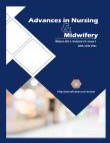Study about the effects of rehabilitation on quality of life in multiple sclerosis patients
Author(s):
Abstract:
Background and aimMultiple sclerosis is a progressive demyelization disease which can progress to physical disability in many patients. People with multiple sclerosis face many problems and complications which require appropriate education and interventions. Multidisciplinary neurorehabilitation is an effective treatment for quality of life improvement in MS patents. The purpose of this study is to examine the effect of Hayate Noo center rehabilitation protocol on quality of life of MS patents.Materials and methodsIn this clinical trial 130 MS patients (65 patients as treatment group and 65 as control group) were studied. Participants were randomly selected from patients attending Iran MS society in Tehran. The two groups were matched in terms of sex, age and education, type of MS, marital status, time of onset of MS, and disability status. A questionnaire was used for data collection. The questionnaire consisted of three parts. Part one is demographics information and the 2nd part consisted of Persian version of MSQOL-54 questionnaire. This questionnaire has been translated and validated in previous studies, with 0.96 coefficient (alpha cronbach) reliability. The 3rd part included Persian version of PDDS questionnaire. This test is designed to measure the disability status and has a correlation coefficient of 0.80 (spearman correlation) with EDSS (expanded disability status scale). Patients in treatment group participated in the multidisciplinary rehabilitation protocol. This protocol was designed in Hayate Noo center. Each patient in treatment group attended in at least 8 sessions of Hayate Noo multidisciplinary neurorehabilitation protocol for 3 months. All participants were assessed in terms of their disability status prior to the study. Participants in both groups completed MSQOL-54 before and after the study. The data were analyzed using SPSS software, version 16. Student t-test was used to compare means and Pearson correlation coefficient was used for measuring the correlations.Findings Changes in Quality of life scores in treatment group were statistically significant (p<005). Scores of all subscales in Quality of life measure (except for cognitive domain) increased in treatment group compared with the control group. Physical health composite score increased 8.04 point and mental health composite score improved 7.7 point (P<0.001). Also the social activity of treatment group increased comparing with the control group.ConclusionUse of Hayateno center protocol has increased quality of life scores in MS patients. This improvement is comparable with another center in the world.
Language:
Persian
Published:
Advances in Nursing & Midwifery, Volume:20 Issue: 71, 2011
Page:
36
magiran.com/p879900
دانلود و مطالعه متن این مقاله با یکی از روشهای زیر امکان پذیر است:
اشتراک شخصی
با عضویت و پرداخت آنلاین حق اشتراک یکساله به مبلغ 1,390,000ريال میتوانید 70 عنوان مطلب دانلود کنید!
اشتراک سازمانی
به کتابخانه دانشگاه یا محل کار خود پیشنهاد کنید تا اشتراک سازمانی این پایگاه را برای دسترسی نامحدود همه کاربران به متن مطالب تهیه نمایند!
توجه!
- حق عضویت دریافتی صرف حمایت از نشریات عضو و نگهداری، تکمیل و توسعه مگیران میشود.
- پرداخت حق اشتراک و دانلود مقالات اجازه بازنشر آن در سایر رسانههای چاپی و دیجیتال را به کاربر نمیدهد.
In order to view content subscription is required
Personal subscription
Subscribe magiran.com for 70 € euros via PayPal and download 70 articles during a year.
Organization subscription
Please contact us to subscribe your university or library for unlimited access!


